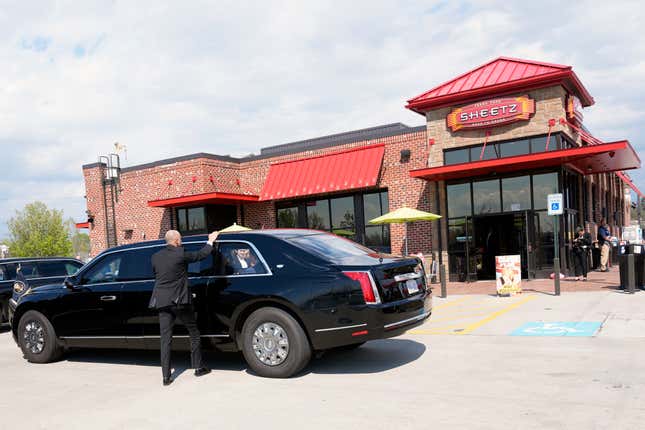
Popular gas station convenience store chain, Sheetz is in hot water after federal officials slapped them with a racial discrimination lawsuit, and the details are seriously worth unpacking.
The Equal Employment Opportunity Commission filed a lawsuit against the massive chain in Baltimore. The company is based in Altoona, Pennsylvania, but operates 600 locations across six different states, including Pennsylvania, West Virginia, Maryland, Ohio, and North Carolina.
The interesting part about the case is that the EEOC is alleging Sheetz discriminated against minority applicants. According to the government, Sheetz used a practice of screening all job applicants for criminal convictions. “The EEOC charges that Sheetz’s hiring practices disproportionately screened out Black, Native American/Alaska Native and multiracial applicants,” they wrote.
The EEOC isn’t accusing the company of being motivated by race in their hiring practices. However, they argue that the application of this hiring standard violates the disparate impact discrimination provision of the 1964 Civil Rights Act.
According to the Associated Press, the EEOC found that Black job applicants were screened out at a rate of 14.5%. While white applicants were screened out at a rate of 8%.
“Federal law mandates that employment practices causing a disparate impact because of race or other protected classifications must be shown by the employer to be necessary to ensure the safe and efficient performance of the particular jobs at issue,” explained EEOC Regional Attorney Debra M. Lawrence, in a statement. “Even when such necessity is proven, the practice remains unlawful if there is an alternative practice available that is comparably effective in achieving the employer’s goals but causes less discriminatory effect.”
According to the Associated Press, the commission alerted Sheetz in 2022 that they were violating civil rights law, but were unable to reach a settlement.
For their part, Sheetz told the Associated Press that they do “not tolerate discrimination of any kind.”
“Diversity and inclusion are essential parts of who we are. We take these allegations seriously. We have attempted to work with the EEOC for nearly eight years to find common ground and resolve this dispute,” company spokesperson Nick Ruffner said in a statement to the outlet.

